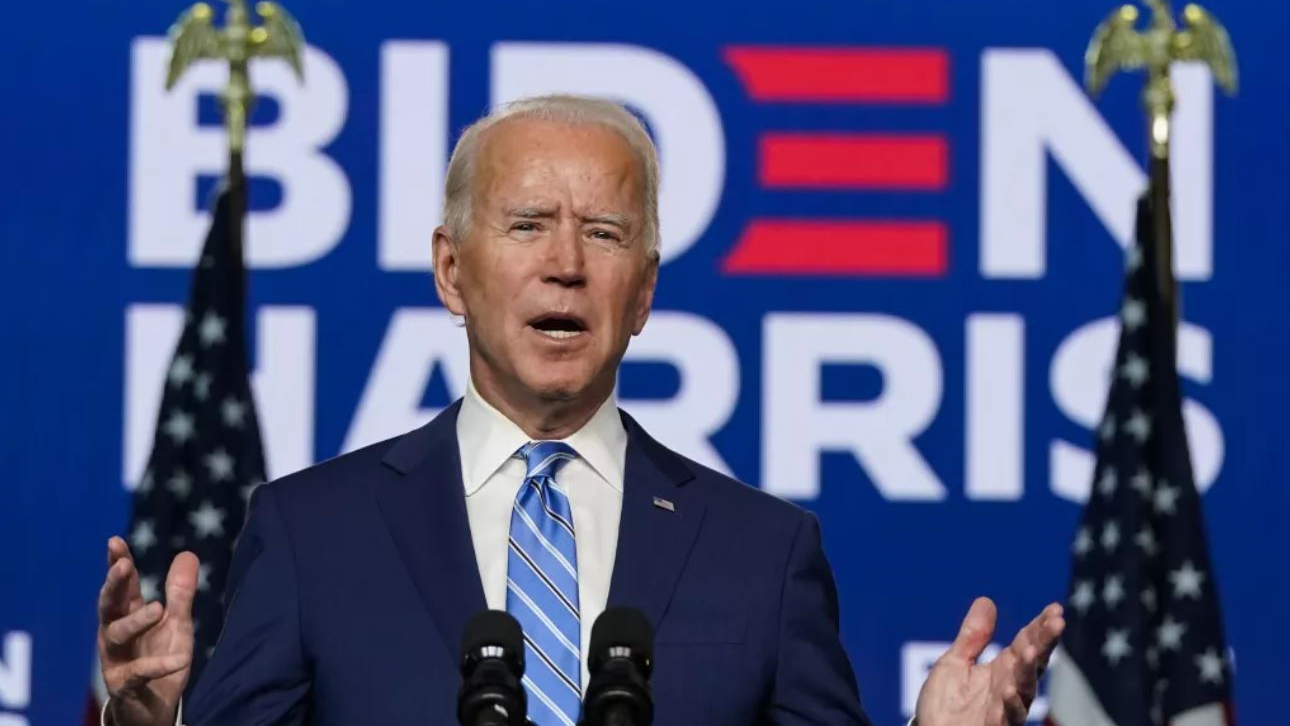Biden American Jobs Plan Predicts Universal, Affordable Broadband By Decade's End
Higher corporate taxes will help pay for massive infrastructure reboot

WASHINGTON—Echoing President John F. Kennedy's promise of a moon landing as the 1960's began, President Joe Biden plans to shoot for the moon in terms of universal broadband access, as well as his version of Kennedy's "the other things," which include transportation, water, clean energy and access to care.
President Joe Biden is signaling that his infrastructure investment plan, which the White House is billing as a jobs plan, will achieve the goal of both universal and affordable high-speed broadband in this decade, with the $100 billion price tag Hill Dems have been pushing.
That is according to White Officials on a background call late Tuesday.
Calling it the electricity of the 21st Century, which echoes former FCC Chairman Tom Wheeler, a senior administration official said it has become clear what the impact of ailing and aging electric power systems has on the economy and families, costing them billions of dollars a year. The White House doesn't want a repeat with broadband.
Biden will make his case for the need for the multi-trillion dollar plan, and the increased taxes to pay for it, in outlining his American Jobs Plan Wednesday. He will make the case for why investing in transportation and energy and broadband and healthcare, including in rural areas, is not only commonsense, and hash bipartisan backing—likely except for the price tag—but is important to do now. He will likely point to the fact that the COVID-19 crisis has put a spotlight on the lack of internet access, which means lack of access to the modern economy.
Congress Democrats are certainly on the same page when it comes to the need for universal broadband and the reasons why.
House Majority Whip James Clyburn (D-S.C.), joined by Sen. Amy Klobuchar (D-Minn.), earlier this month re-introduced a bill to close the digital divide by connecting everyone to the internet at high speeds, with 1 Gig as the goal.
Get the TV Tech Newsletter
The professional video industry's #1 source for news, trends and product and tech information. Sign up below.
"Internet access will have the same dramatic impact on rural communities as the rural electrification efforts in the last century," Clyburn tweeted of the bill, which he previewed at the INCOMPAS virtual conference last month. "This pandemic has further widened the digital divide and exposed the urgent need to enact the Accessible, Affordable Internet for All Act," said Clyburn.
Here is how The Plan plans to get broadband out there:
"Generations ago, the federal government recognized that without affordable access to electricity, Americans couldn’t fully participate in modern society and the modern economy. With the 1936 Rural Electrification Act, the federal government made a historic investment in bringing electricity to nearly every home and farm in America, and millions of families and our economy reaped the benefits. Broadband internet is the new electricity. It is necessary for Americans to do their jobs, to participate equally in school learning, health care and to stay connected. Yet, by one definition, more than 30 million Americans live in areas where there is no broadband infrastructure that provides minimally acceptable speeds.
" Americans in rural areas and on tribal lands particularly lack adequate access. And, in part because the United States has some of the highest broadband prices among OECD countries, millions of Americans can’t use broadband internet even if the infrastructure exists where they live. In urban areas as well, there is a stark digital divide: a much higher percentage of White families use home broadband internet than Black or Latino families. The last year made painfully clear the cost of these disparities, particularly for students who struggled to connect while learning remotely, compounding learning loss and social isolation for those students.
"The President believes we can bring affordable, reliable, high-speed broadband to every American through a historic investment of $100 billion. That investment will:
1. "Build high-speed broadband infrastructure to reach 100% coverage. The President’s plan prioritizes building 'future proof' broadband infrastructure in unserved and underserved areas so that we finally reach 100% high-speed broadband coverage. It also prioritizes support for broadband networks owned, operated by or affiliated with local governments, non-profits and co-operatives—providers with less pressure to turn profits and with a commitment to serving entire communities. Moreover, it ensures funds are set aside for infrastructure on tribal lands and that tribal nations are consulted in program administration. Along the way, it will create good-paying jobs with labor protections and the right to organize and bargain collectively.
2. "Promote transparency and competition. President Biden’s plan will promote price transparency and competition among internet providers, including by lifting barriers that prevent municipally-owned or affiliated providers and rural electric co-ops from competing on an even playing field with private providers, and requiring internet providers to clearly disclose the prices they charge.
3. "Reduce the cost of broadband internet service and promote more widespread adoption. President Biden believes that building out broadband infrastructure isn’t enough. We also must ensure that every American who wants to can afford high-quality and reliable broadband internet. While the President recognizes that individual subsidies to cover internet costs may be needed in the short term, he believes continually providing subsidies to cover the cost of overpriced internet service is not the right long-term solution for consumers or taxpayers. Americans pay too much for the internet—much more than people in many other countries—and the President is committed to working with Congress to find a solution to reduce internet prices for all Americans, increase adoption in both rural and urban areas, hold providers accountable and save taxpayer money."
Contributing editor John Eggerton has been an editor and/or writer on media regulation, legislation and policy for over four decades, including covering the FCC, FTC, Congress, the major media trade associations, and the federal courts. In addition to Multichannel News and Broadcasting + Cable, his work has appeared in Radio World, TV Tech, TV Fax, This Week in Consumer Electronics, Variety and the Encyclopedia Britannica.

